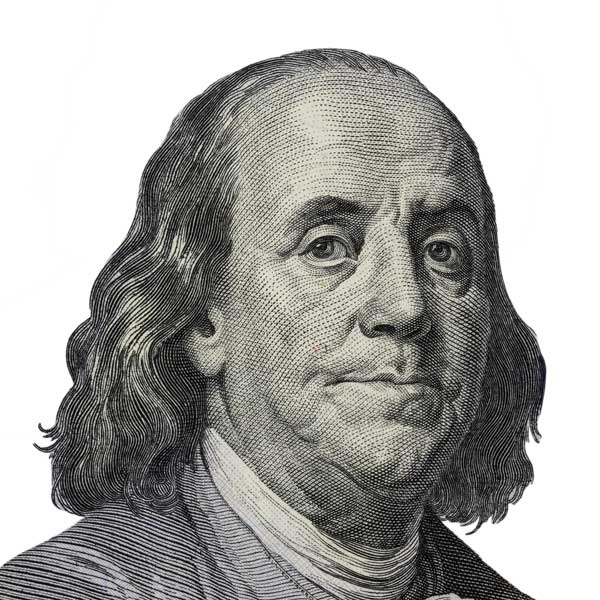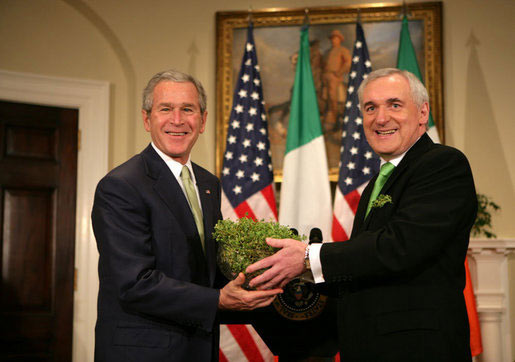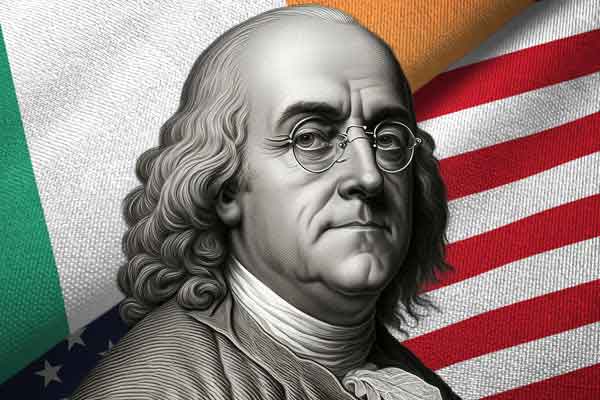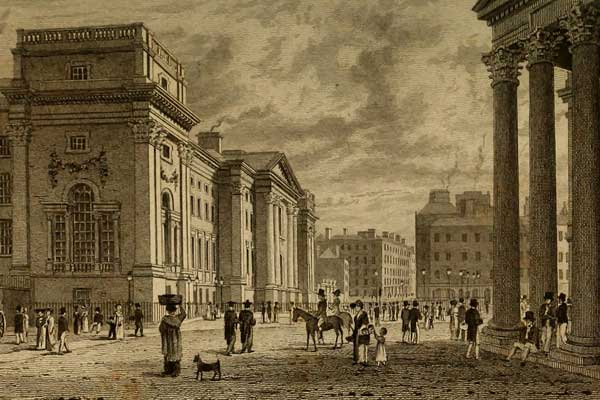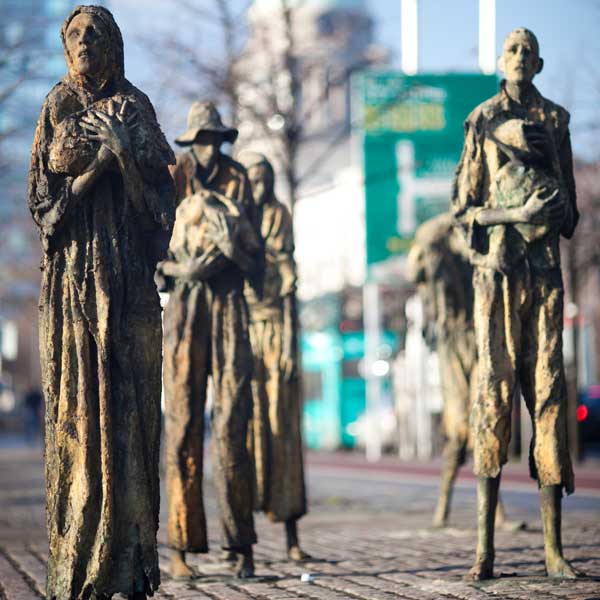When we think of the enduring links between Ireland and the USA, what often comes to mind is the waves of Irish immigration and the way those immigrants and their descendants have proudly retained their culture while also contributing so much to the United States. Many American politicians are eager to find any link in their family to Ireland, and every St Patrick’s Day, the Irish Taoiseach presents the most famous of Irish gifts – a crystal bowl of shamrock – to the US president.
But it isn’t only Irish-Americans who foster the bonds between the two nations. Throughout history, political leaders, activists, writers and artists have travelled across the Atlantic for inspiration, education and solidarity. Fredrick Douglass’ travels in Ireland led to a lifelong friendship and correspondence with Daniel O’Connell rooted in the similarities in their struggles for freedom and justice. Oscar Wilde’s time in the US had a huge influence on his work. Before either of those famous journeys, Benjamin Franklin came to Ireland, and what he saw here inspired his leadership in America’s fight for independence.
Franklin had no roots in Ireland. His father Josiah Franklin was born in England, and his mother Abiah Folger was the descendant of Puritans who had fled England. But he seemed to feel a spiritual kinship based on how both peoples were being exploited as British colonies.
What Franklin Thought of Ireland
At the time of Franklin’s visit to Ireland in September and October 1771, the contrast between the lives of the wealthy landowners and ordinary Irish was stark. It was 20 years before the founding of the Society of United Irishmen, and nearly 30 years before the 1798 uprisings. But Franklin saw the will of the people for independence as clearly as he saw the misery and poverty they suffered under British rule.
“Ireland is itself a fine country, and Dublin is a magnificent city,” Franklin wrote in a letter to Thomas Cushing. “But the appearances of general extreme poverty among the lower people are amazing. They live in wretched hovels of mud and straw, are clothed in rags and subsist chiefly on potatoes. Our New England farmers of the poorest sort… are princes when compared to them.”
Franklin explained this was a result of British rule, and saw that while people generally fared better in the American colonies, both peoples needed to free themselves from the crown to thrive. His letter also detailed a conversation where a British landowner asked him why Americans didn’t sell their food and fabrics abroad. He replied that Americans consumed these products themselves, whereas “the chief exports of Ireland seem to be pinched off the backs and out of the bellies of the miserable inhabitants.”
Franklin wrote much about how the British controlled trade in both colonies, and how it hurt the people there. No doubt he would be pleased to see that today, trade between the two nations is robust and Americans enjoy a wide variety of Irish gifts that nurture their connections with their roots – familial, cultural and philosophical.

